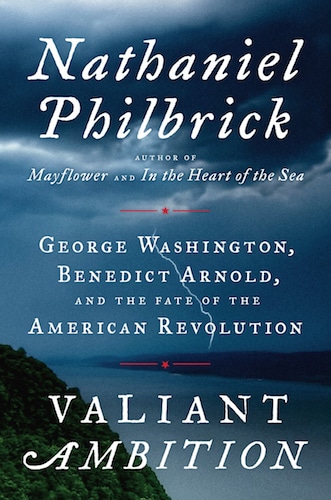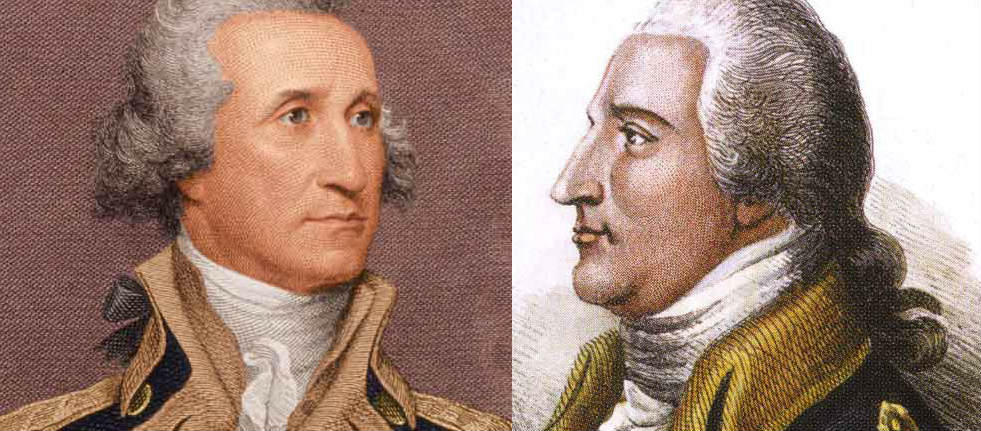
One of my upper-level history courses is on the American Revolution. I’m teaching it again this semester and am using a book I’ve not used before—Nathaniel Philbrick’s Valiant Ambition—with a subtitle that provides the precise goal of the work: George Washington, Benedict Arnold, and the Fate of the American Revolution. History is not about “forces” that make things happen; rather, history is the story of individuals whose decisions push the narrative one way or the other. In this book, Philbrick admirably shows how the individual decisions of these two men affected the result of that revolution.
I love a book that concentrates on the character of the historical actors. In chapter ten, “The Chasm,” Philbrick details a comparison of the characters of Arnold and Washington and points out the stark difference between the two men. Both suffered in the war. Both were stabbed in the back politically at times. Both were unappreciated for their efforts. Yet their responses to those circumstances couldn’t have been more dissimilar.
Arnold always chomped at the bit whenever he wasn’t in charge. He rarely thought of others; his focus was on himself and what he wanted to gain from his exploits. Washington, although disrespected even by the Continental Congress at times (most decidedly during the agony of Valley Forge), nevertheless continued to work with the political leaders to achieve the highest goals of the Declaration of Independence.
Philbrick, begins his dual analysis with these words about Arnold:
The same narcissistic arrogance that enabled him to face the gravest danger on the battlefield without a trace of fear had equipped him to be a first-rate traitor. Arnold had never worried about the consequences of his actions. Guilt was simply not a part of his makeup since everything he did was, to his own mind, at least, justifiable. Where others might have shown, if not remorse, at least hesitation or ambivalence, Arnold projected unwavering certitude. Whatever was best for him was, by definition, best for everyone else.
According to the Mayo Clinic’s definition of narcissism, a person who falls into that category has an inflated sense of his own importance, a deep need for excessive attention and admiration, troubled relationships, and a lack of empathy for others. Such a person might come across as supremely confident, but is actually rather emotionally fragile and vulnerable to the slightest criticism.
That describes Benedict Arnold perfectly as one examines how he lived his life and what he expected to receive from others. Washington, on the other hand, exhibited none of those characteristics.
Washington’s sense of right and wrong existed outside the impulsive demands of his own self-interest. Rules mattered to Washington. Even though Congress had made his life miserable for the last four years, he had found ways to do what he considered best for his army and his country without challenging the supremacy of civil authority. To do otherwise, to declare himself . . . master of his army and his country, would require him to become “lost to my own character.”

“For Arnold,” Philbrick continues, “rules were made to be broken.” He had broken the rules throughout his entire life, always for what he decided was for his own personal benefit.
He had done it as a pre-Revolutionary merchant and he had done it as military governor of Philadelphia. This did not make Arnold unusual. Many prominent Americans before and since have lived in the gray area between selfishness and altruism. What made Arnold unique was the god-like inviolability he attached to his actions.
He had immense respect for a man like Washington, but Arnold was, in the end, the leading personage in the drama that was his life. Not lost to his own character, but lost in it. Arnold did whatever Arnold wanted.
Benedict Arnold wanted money and respect from the British. He ended up with some of the first and none of the latter after he sold out his countrymen. George Washington persevered through eight excruciating years of deprivation without wavering in his desire to be faithful to the charge he was given.
After the final big battle of the Revolution, that of Yorktown, Washington still had to keep his army together for two more years in case peace negotiations broke down. That time was one of the hardest due to the financial distress of the era and the lack of provisions for his army. At one point, some of his officers who felt he was the country’s only hope proposed that he make himself king. He swiftly rebuked them for even suggesting such a thing. That would have been just as traitorous an act as Arnold’s in Washington’s estimation.
Late in 1783, he arrived at the Congress and resigned the commission they had given him, and he never regretted doing so. He had served with a clear conscience and could now, after all those years, finally go home.
George Washington was called upon to be the nation’s first president, but he didn’t take on that responsibility for the honor of the position. In fact, he didn’t want the position at all; he took it only because his country asked him to do so; the citizens knew that his character was exactly what was needed to ensure that the new Constitution’s government would be effective.
Can you imagine a political scene now where a person takes the presidency against his own wishes? We seem to be awash in politicians who fall into the Benedict Arnold mold of narcissistic self-aggrandizement. Wouldn’t it be great to find someone with the Washington attitude and heart? I try not to be cynical. I believe there are people out there in the political world who sincerely seek to serve as principled officeholders. The hard part is how to identify them. Real discernment is one of our most pressing needs.
In the book of Hebrews we are told, “Solid food is for the mature, who by constant use have trained their senses to distinguish good from evil.”
May we be mature. May we constantly practice distinguishing good from evil. The comparison between Benedict Arnold and George Washington is a great lesson for us all.
